‘Smart cities’ for all requires putting yourself in every citizen’s shoes
26/05/2022
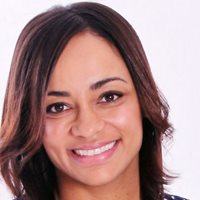
Smart cities could have great impact, but involving every citizen, at every level, is key to ensuring that ‘smart’ means nobody is left behind, according to research by a Nelson Mandela University academic.
“Cities in South Africa are classified as ‘smart’, but who gains value from the initiatives, who are the stakeholders and are smart city initiatives designed with all users in mind? I set out to research this,” said Dr Anthea van der Hoogen of the university’s Computing Sciences Department.
Van der Hoogen received her doctorate in July 2021 for her dissertation titled “A Value Alignment Smart City Stakeholder (VASCS) Model”, in which she used this model in Gqeberha and East London to establish the success factors of their smart city initiatives.
Her on-the-ground approach involved putting herself in the position of a citizen, worker and student to see how the ‘smart’ aspect of these cities should function.
She also interviewed a range of experts who told her that smart city solutions did not need to be Tesla-scale or mega solar solution-based – they could involve small solutions that helped a community to survive.
“While the Internet of Things (IoT), cloud, mobile and web applications, WiFi hotspots and Internet are key smart city initiatives, so are initiatives such as using recycled material to build community halls and schools. This adds to communities learning to use what they have at their disposal.”
Post Source: Nelson Mandela University News
Choir’s rendition of heart-felt African favourite to mark Africa Day
25/05/2022
Breathing new life into the popular “Say Africa” song by the Nelson Mandela University is set to resonate with new audiences all over again, following its relaunch on Africa Day.
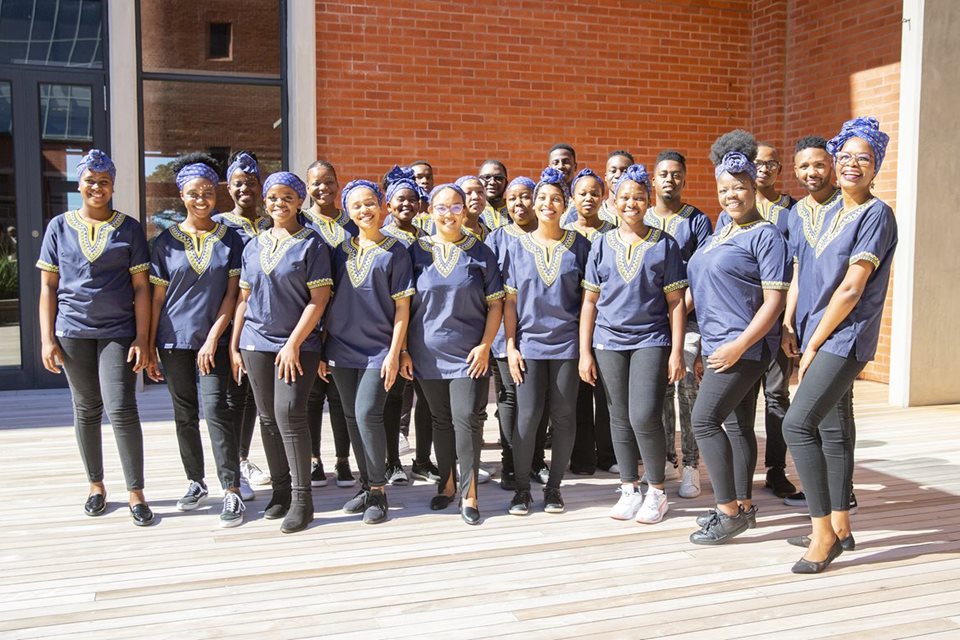
That’s the word of Gqeberha singer-songwriter Dave Goldblum, who wrote the original feel-good song in 1997, and which was performed at the opening of the FIFA World Cup in 2010.
“Personally, I am thrilled that a group of young musicians is giving new life to the song. I really love the arrangement and the production. I wish them all the best. Who would have guessed when I wrote Say Africa that it would take on a life of its own to resonate so much with so many,” said Goldblum, whose original storytelling style has been given an upbeat flavour.
The new rendition will be released on Africa Day, 25 May, when the continent reflects on its journey and achievements, under the theme of “The Year of Nutrition: Strengthening Resilience in Nutrition and Food Security on the African continent”.
The choir's rendition is performed a cappella, overlayed with African percussion as created by the University’s Conductor Ulagh Williams, who also arranged the song to incorporate Xhosa phrases and traditional African elements.
Williams, who works within the Arts, Culture and Heritage arm of Communication and Marketing, says she wanted the voices and the story to remain the focus, but to make the song accessible to a younger generation.
The piece, which pays tribute to all things African, was recorded late last year on the University’s Bird Street Campus in Central.
The University’s choir has played a key role in the past in entrenching the importance of arts, culture and heritage, and this year will be no exception. It remains committed to honouring South African music, in particular music by Eastern Cape composers and songwriters, like Goldblum.
Mandela Uni VC to share institution’s hopes with US philanthropists
20/05/2022
Next week, our Vice-Chancellor, Professor Sibongile Muthwa, will be sharing the story of Nelson Mandela University and its African-proposed solutions for major challenges, with a global audience.
We, as Mandela University staff and students, also have the opportunity to join the virtual Africa Day interactive conversation, or so-called “fireside chat”, on Wednesday, 25 May (see registration details below).
Prof Muthwa, who was recently re-appointed to lead Nelson Mandela University for a second five-year term, will share about the institution’s efforts in co-creating partnerships in both the public and private sector to seek solutions around unemployment, poverty and inequality.
The fireside chat, an informal yet structured engagement between Prof Muthwa and founder of the International Social Impact Institute CEO, Elizabeth Ngonzi, will be hosted by the King Baudouin Foundation United States. The latter organisation, as a “philanthropy architect” and serves as a bridge between American donors and non-profit organisations overseas.
Mandela IT Profs receive national recognition by the IITPSA
09/05/2022
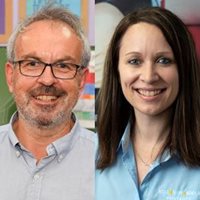
Two Mandela University professors have been recognised by the Institute of Information Technology Professionals of South Africa (IITPSA).
Prof Kerry-Lynn Thomson from the School of ICT has been awarded Professional Membership of the Institute and Prof Jean Greyling, HOD of the Department of Computing Sciences, has been made a Fellow.
The title of “Fellow of the Institute” is bestowed only on those members who have made exceptional contributions to the Institute and to the computer industry in South Africa and is awarded by the Board and the body of Past Presidents. A fitting honour to Prof Greyling who has made enormous contributions to this field.
Ethical leadership Under the Spotlight at inaugural Mandela Uni Event
16/05/2022
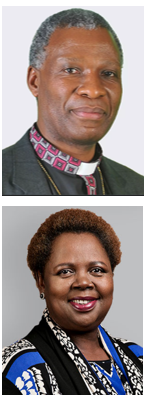
Leading South African businesswoman Dr Gloria Serobe will set the tone for a critical conversation around ‘value-based leadership’ to be held at Nelson Mandela University on Thursday, 19 May.
The Inaugural Archbishop Thabo Makgoba Development Trust Lecture will take the form of a conversation to allow for “substantive intergenerational interaction” between three young academics and Dr Serobe (pictured left). They will be hoping to unpack the viability and value of ethical leadership in the face of the challenges being experienced by South Africa.
The hybrid event from 4.30 to 6.30pm on Thursday, 19 May 2022, will be anchored by Dr Serobe, an advocate of social equity, fairness, justice and equality, who is deeply committed to building a stronger economy for South Africa through value-based leadership.
Dr Serobe’s business acumen coupled with her unflinching integrity has seen her receive many accolades, making the Mandela University 2021 honorary doctorate recipient an ideal choice for the inaugural lecture.
The Anglican Archbishop and his family will also be in attendance, along with the University’s Vice-Chancellor Professor Sibongile Muthwa.
Lost and found: reclaiming our Khoisan musical heritage
16/05/2022
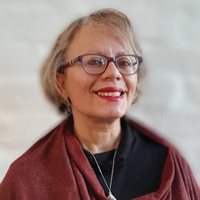
Two years ago, Professor Alethea de Villiers, Department of Music and Performing Arts head, clinched one of five coveted international music education research grants.
The prestigious award would launch a rewarding journey into the rich and multi-layered history of South Africa’s ‘first nation’ people, the Khoisan.
Passionate about music education policy, multicultural education and democratic citizenship, Prof de Villiers had realised that little was being said about the people who call themselves South Africa’s first nation – the Khoisan – in the music curriculum.
As a result, she responded to a call from ISME-SEMPRE (Society for Education, Music and Psychology Research) for applications to fund research on the music culture of first nations. The successful proposal was awarded $3000 (approximately R42 000) for a research project titled, “Rewriting the decolonising and indigenising narrative: A South African case study”.
“The indigenising project is looking at how music from the culture of all the South African people can be incorporated into the curriculum,” says Prof De Villiers.
Law student sets her sights on maritime cyber security
11/05/2022
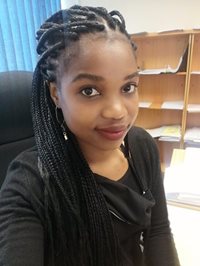
Ocean-loving attorney and master’s student Yonela Ndila is passionate about ocean governance and the law of the sea.
A legal eagle studying in the Faculty of Law through the Nurturing Emerging Scholars Programme (NESP), she is committed to contributing research and findings to this growing area of global concern.
“I always wanted to go to university,” says Ndila, who grew up in Khayelitsha. “So many young people in the townships drop out of school and are unemployed, but I wanted something better. Fortunately, my parents, both nurses, encourage and sacrificed for my siblings and I to pursue our education.”
Rising star
After her BCom Law and LLB at the University of the Western Cape, Ndila set her sights on doing her master’s.
The NESP route made this possible, as her undergraduate degrees had put considerable financial strain on her.
Her career goals are clear: to contribute to academic through both research and practical experience.
Ndila was admitted as an attorney of the High Court of South Africa and notary in November last year.
Computer Science Master’s graduate focuses on smart cities and crime predictions
10/05/2022
Kahl Kritzinger is the first Mechatronics graduate to also obtain an MSc in Computer Science at Nelson Mandela University, and cum laude to boot!
His research focused on smart cities using past crime data to predict future crime location and time.
His research, supervised by Computing Sciences’ Prof Andre Calitz and Physics’ Dr Lindsay Westraadt, found that predictive policing is a promising prospect for addressing the crisis of crime in SA, but poor data quality severely hampers its effective use right now. Poor data capturing procedures, a lack of inter-sector data compatibility and vague crime classifications are the main obstacles to data which can facilitate a predictive policing application.
Kahl (30) says his undergraduate degree in mechatronics afforded him a broad perspective on problem solving in multiple disciplines, as well as a solid grounding in how multiple systems interact with each other. His MSc compliments these skills well, as it taught him the rigours of the scientific process and analysing a concept to its fundamental principles. He believes he can now "switch" between these approaches to address everyday obstacles in a unique way.
Kahl was initially unsure of what to study and thought that mechatronics would introduce him to a wide range of disciplines. He liked the idea of working in robotics and automation and thought it would offer exciting career paths.
From refugee to entrepreneur and IT graduate
09/05/2022
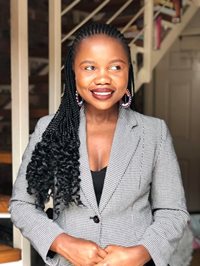
After escaping captivity and fleeing a village in the Democratic Republic of Congo, walking 6000km to South Africa and starting school at the age of 10 - Popina Khumanda graduated with a Diploma in IT at Nelson Mandela University’s Autumn Graduation.
“Dreams do come true. I came to this country with nothing but dreams, hope and determination. Witnessing them all come to life is overwhelming,” she says.
Popina is currently working at AgileHuts based in Cape Town training to be a ScrumMaster. Scrum is a framework for project management that emphasises teamwork, accountability, and repeating progress towards a well-defined goal.
“I see myself working with people, becoming a professor and an author of books. I love writing, reading, and showcasing my creativity. I am currently studying for my Advanced Diploma in IT and I am enjoying the challenge that comes with it” Popina says.
Initially she wanted to study Electrical Engineering, but she was told that she would struggle with Mathematics and was advised to study IT. “IT chose me but it took me a whole year to realise that this course is perfect for me” she says.
This young entrepreneur has also created a website for her hair business, Urban Doll Factory, where she sells wigs and weaves online to pay for her rent, food and transport to university.
PhD study proposes a new renewable energy statute for South Africa
07/05/2022
Using the principles of international law and the regulatory systems in Germany and the UK, the PhD study of Roelof van Huyssteen proposed a new renewable energy statute for South Africa to promote environmental, economic and social development and to assist South Africa towards a just transition.
Roelof graduated with his PhD in Public Law at Nelson Mandela University’s Autumn Graduation. His supervisor was Public Law Professor Joanna Botha and the co-supervisors were Physics Professor Ernest van Dyk, who also specialises in renewable energy, and Professor Sam Adelman, from the University of Warwick in the United Kingdom and affiliated to Public Law at Mandela Uni.
Understanding the science behind climate change and the technical aspects of renewable energy is a critical factor that must be considered when designing law and policy, says Roelof, (30). This understanding is what differentiates this study and created the opportunity for the disciplines of law and science to intersect.
The world's overexploitation of fossil fuels has brought about many negative effects on our environment, human health, and socio-economic circumstances. The science supporting climate change is clear and there is an unequivocal scientific link between the world's changing climate and the historical and continued reliance on fossil fuels, he says.
Masters’ student publishes book of isiXhosa poetry
05/05/2022
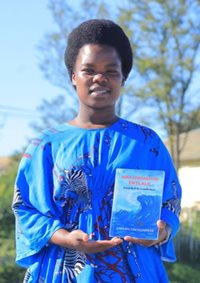
Masters in isiXhosa student, Anelisa Thengimfene, has published a book of poems entitled "Amajingiqhiw'entlalo" (the ups and downs of life).
During her honour’s studies, Anelisa came across poems with new themes in a modern poetry module lectured by Professor Linda Kwatsha. After analysing these poems, she felt that she could write her own, in a creative way, and publish her own book.
Her poems live under the themes of dialogic poems, Afrocentric, gender, nostalgia, sign language poetry and interdisciplinary poetry.
Anelisa, from Ngqamakhwe at Jojweni in the Eastern Cape completed her undergrad studies at Walter Sisulu University in Mthatha and at UNISA.
From humble beginnings to Doctorate in HR Management
04/05/2022
Coming from humble beginnings, Dr Munodani Chapano, utilised every opportunity that came his way to fight for his education and graduated on 20 April at Mandela University with his PhD in Human Resource Management.
“He is a great role model to all of us and especially our students”, say his supervisor and co-supervisor Human Resource Management’s Prof Michelle Mey (right in the photo) and Dr Amanda Werner (left).
Munodani (37) was born in a small rural village, Maunze in the Chipinge district of Zimbabwe where his parents were farm workers. He was two years old when his father passed away. His mother, not having had a formal education herself, insisted that Munodani obtain decent school education, and worked long hours and took on various jobs to support him through his basic education.
Munodani worked hard and excelled, obtaining sponsorships and opportunities to eventually graduate with a PhD. Even while doing his PhD, he had to make sacrifices, including being away for long periods of time from his wife and three children who are still in Zimbabwe.
Students develop blood loss detection device for surgeries
03/05/2022
Nelson Mandela University advanced engineering design group students have developed an early-detection device to help with the prevention of unnecessary blood loss during surgeries and other medical procedures.
From left to right: Jode Fourie - MEng (Mechanical), Dr Lorenzo Boretti - PHD (Chemistry), Wian van Aswegen - BEngTech (Mechanical) & Brian Jack - BEngTech (Mechanical)
The portable device called Blood Alert is attached to a blood collection cylinder during surgeries to monitor the amount of blood a patient loses.
The students, Jode Fourie and Brian Jack, have created two prototypes of the device for use at Livingstone Hospital.
Acting as an extra pair of eyes in theatre, the device can be programmed to alert anaesthetists when a patient’s blood has reached a concerning amount as indicated on the cylinder.
This, anaesthetist Dr Marne Page said, would help save the lives of patients who could not tolerate certain amounts of blood loss, as surgeons and other staff often had to divide their attention between several things at a time.
This article appeared in The Herald (South Africa) on 27 April 2022 written by Zamandulo Malonde malondez@theherald.co.za
Mandela Uni excited at prospect of continued relationship with High Court Judge Govindjee
03/05/2022
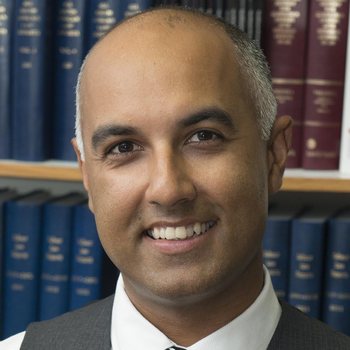
With a passion for social justice, legal education and personal growth and development, it was no fluke that Nelson Mandela University’s former Executive Dean of the Faculty of Law, Professor Avinash Govindjee, rose to the bench of the Eastern Cape High Court at Makhanda.
Prof Govindjee, who served Mandela University in various capacities in the faculty for 20 years, assumed his position as High Court Judge at Makhanda in January this year, after acting in the position in Gqeberha since January 2021.
He has expressed a wish to continue with some academic involvement as a means to contribute to the development of young, aspiring lawyers. Mandela University is excited at the prospect of a continued association with Judge Govindjee.